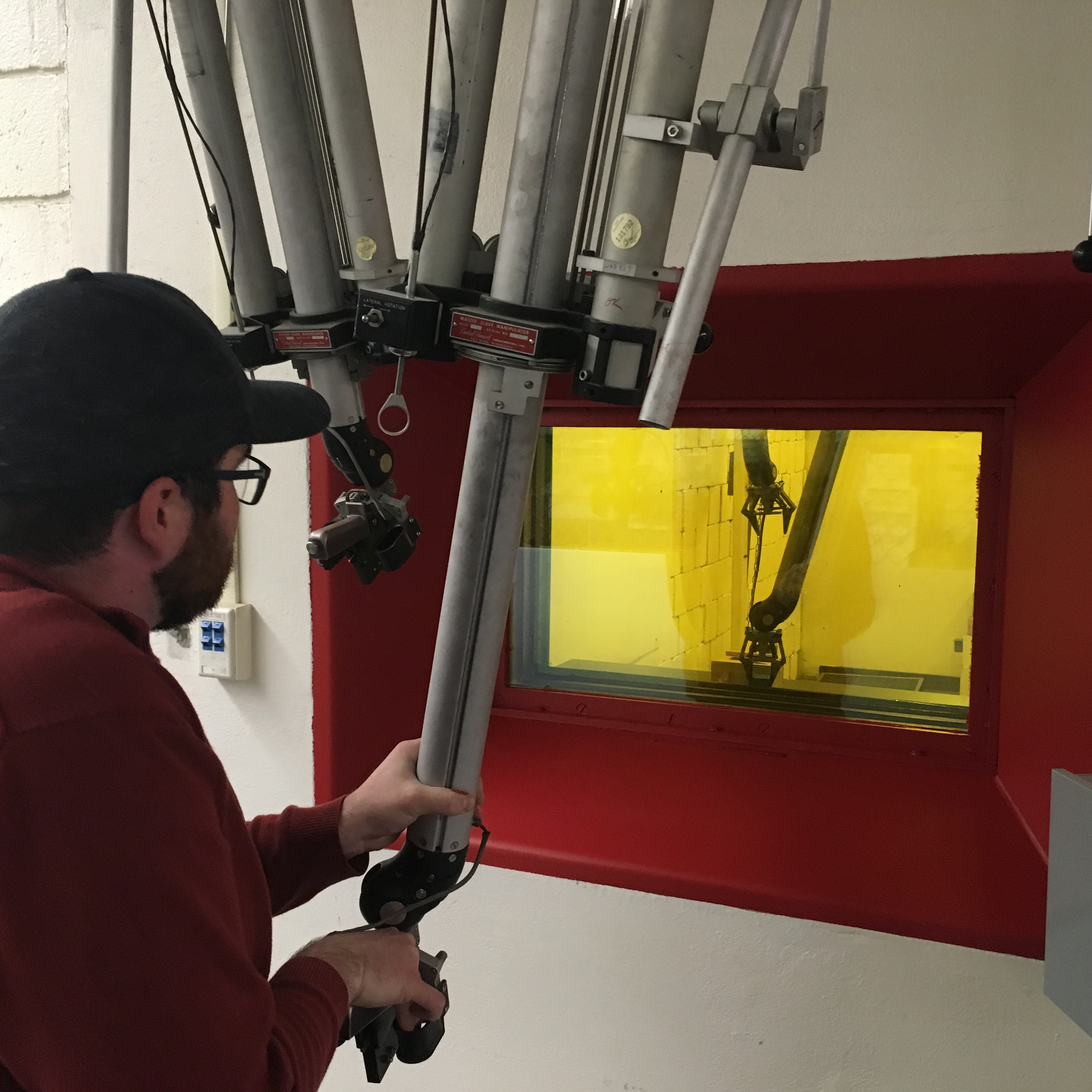Recent News
NE students visit Institute for Space and Nuclear Studies
September 15, 2025
Perfetti receives ANS Landis Engineering Achievement Award
June 26, 2025
UNM to host first-ever residential nuclear engineering camp
May 29, 2025
UNM faculty chair international nuclear conference on Mathematics and Computational Methods
April 25, 2025
News Archives
Nuclear engineering faculty awarded part of $61 million in funding from Department of Energy
June 24, 2022 - Kim Delker
Several researchers from The University of New Mexico School of Engineering have been selected for funding from the U.S. Department of Energy (DOE) for various nuclear-related projects as part of $61 million awarded to 74 nuclear energy projects across the country.
The awards were made as part of the Nuclear Energy University Program (NEUP), the goal of which is to maintain U.S. leadership in nuclear research across the country by providing top science and engineering faculty and their students with opportunities to develop innovative technologies and solutions for civil nuclear capabilities.

A student in the Department of Nuclear Engineering uses manipulators in the hot cell at UNM.
The projects, which will support nuclear technology development, infrastructure improvements and career opportunities at more than 40 U.S. universities, will also help move the nation closer toward its goal of achieving net-zero emissions by 2050 by expanding access to nuclear energy, which is the nation’s largest source of clean power.
The projects that UNM is connected with are mostly related to developing next-generation nuclear reactors that are safer and more efficient, as well as improving and developing the technology that supports them.
Minghui Chen, an assistant professor of nuclear engineering, is the principal investigator of “ARISE: Advanced Reactors Integral and Separate Effects Tests — An Integrated Research and Education Program.” The funding for the five-year award is estimated to be $625,000.
For this project, he was one of five to receive the Distinguished Early Career Award Program award, which was given out for the first time this year by DOE’s Office of Nuclear Energy as the most prestigious award for faculty members beginning their careers. The intent of the program is to provide stable and sufficient support to enable awardees to develop careers as researchers and educators.
“As a former professor, I know firsthand the huge impact of stable support for emerging leaders in the scientific fields,” said Assistant Secretary for Nuclear Energy Dr. Kathryn Huff. “It allows early career researchers and educators to start solving big challenges right away, carry their work forward, and share that knowledge to make a real difference in the world.”
Chen’s integrated research and educational program will seek to perform separate effects tests and integral effects tests using a versatile molten salt test facility at UNM to validate system codes in support of the deployment of molten salt reactors and fluoride salt-cooled, high-temperature reactors technologies and the expanded use of nuclear energy worldwide. The project will also offer training and educational opportunities to both undergraduate and graduate students, especially those from Native American, Hispanic and underrepresented groups, involving advanced reactors and hands-on molten salt experiments.
NEUP funding was also awarded to Mohamed El-Genk, Distinguished and Regents’ Professor in the Department of Nuclear Engineering and founding director of the Institute for Space and Nuclear Power Studies, and Timothy Schriener, research assistant professor of nuclear engineering and senior member of the Institute for Space and Nuclear Power Studies, for “Demonstrating Autonomous Control, Remote Operation, and Human Factors for Microreactors Under Prototypic Conditions in PUR-1.” UNM faculty are collaborating with Curtiss-Wright Nuclear Division and Argonne National Lab on the Purdue University-led project, estimated to be $800,000.
The goal of this project is to experimentally validate machine-learning-based autonomous control optimized for microreactors and demonstrate its use under prototypic conditions by remotely monitoring and controlling Purdue’s all-digital university reactor, PUR-1. The autonomous control architecture will be trained and tested using data from existing high-fidelity physics-based microreactor models and real-time operation digital data from PUR-1.
In another project that will be funded, Osman Anderoglu, assistant professor of nuclear engineering, is a collaborator on the University of Kentucky-led project along with Los Alamos National Laboratory, on “Development of Irradiation and Creep Resistant High-Cr Ferritic/Martensitic Steels via Magnetic Field Heat Treatment.” The project, estimated to be $800,000, will develop and test a new generation of ferritic/martensitic (F/M) steels specifically designed for advanced reactors that will exceed the current limitations due to temperature and irradiation dose.
And Chen is also a collaborator on a project led by University of Tennessee-Knoxville called “Developing the Technical Basis and Risk Assessment Tools for Flexible Plant Operation. Additional collaborators on the $4 million project are researchers from University of Tennessee-Knoxville, University of Texas – San Antonio, Idaho National Laboratory and University of Idaho.
The project addresses challenges related to operations and maintenance, human factors and risk assessment to enable flexible plant operation and generation. The team said that nuclear energy is potentially well-suited to flexible missions, including efficient and cost-effective co-generation with industrial heat applications, but there are challenges. This research will address these challenges and regulatory concerns associated with expanded application of the existing fleet of light water reactors to support on- and off-grid applications.
UNM’s Department of Nuclear Engineering was recently ranked the No. 14 graduate program in the country in the U.S. News & World Report Best Graduate Engineering Schools 2023 survey. In fiscal year 2021, the department received nearly $2.3 million in external research funding, and the Institute for Space and Nuclear Power Studies (a center within the School of Engineering directed by El-Genk) received about $262,000 in external research funding for that time period. In late 2021, the center was awarded $650,000 from NASA to develop lightweight heat rejection radiators for future planetary and space exploration missions.
Since 2009, the Office of Nuclear Energy has awarded more than $931 million to advance nuclear energy research and train the next generation of nuclear engineers and scientists.
